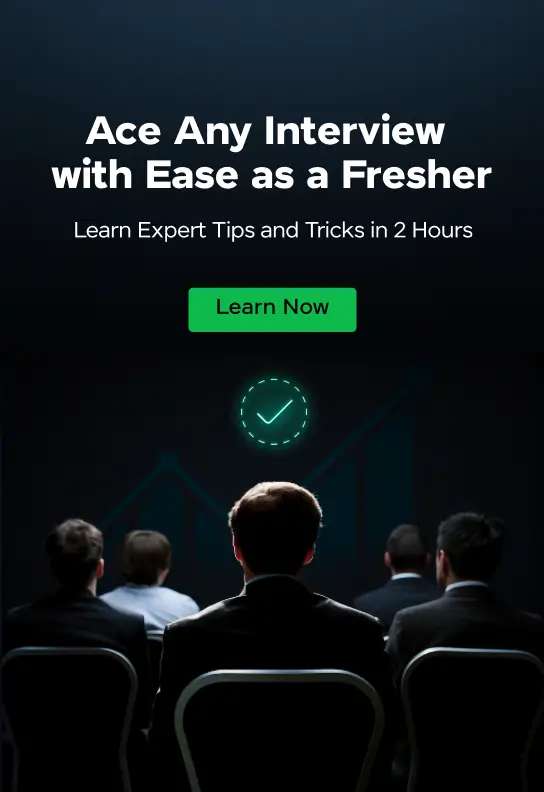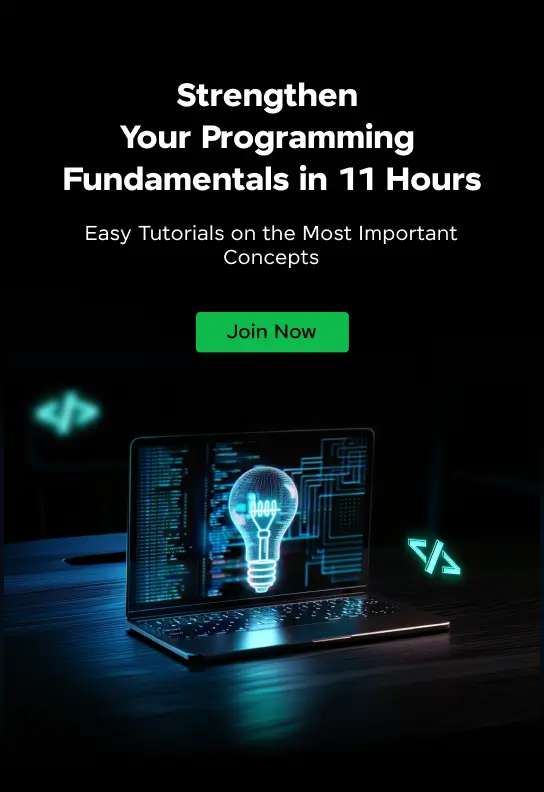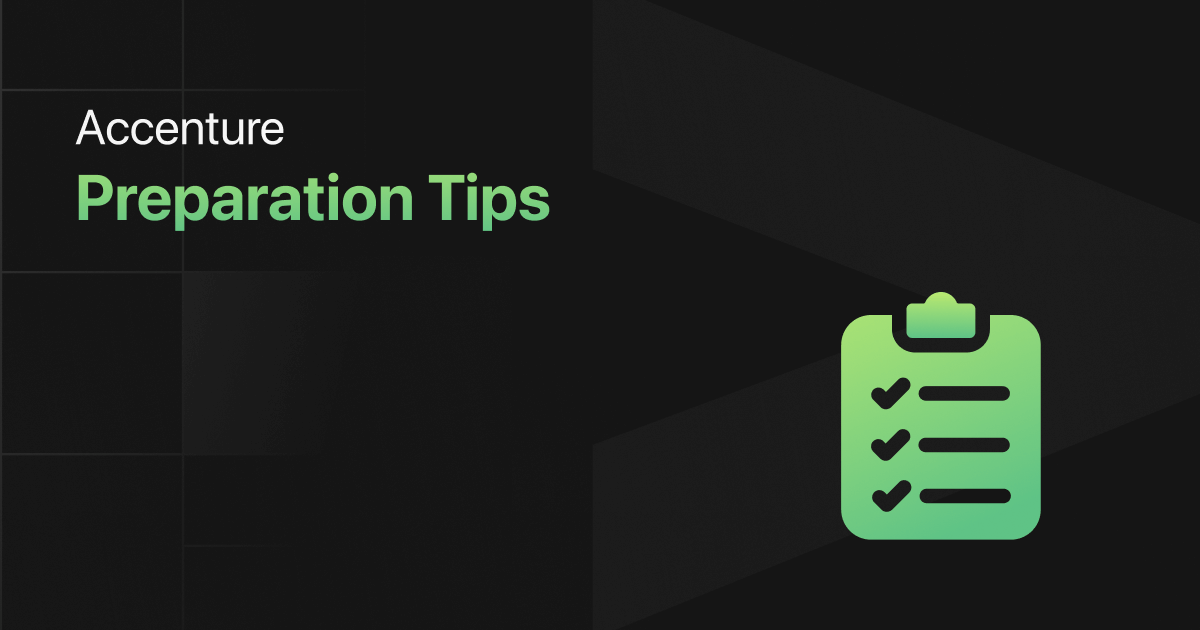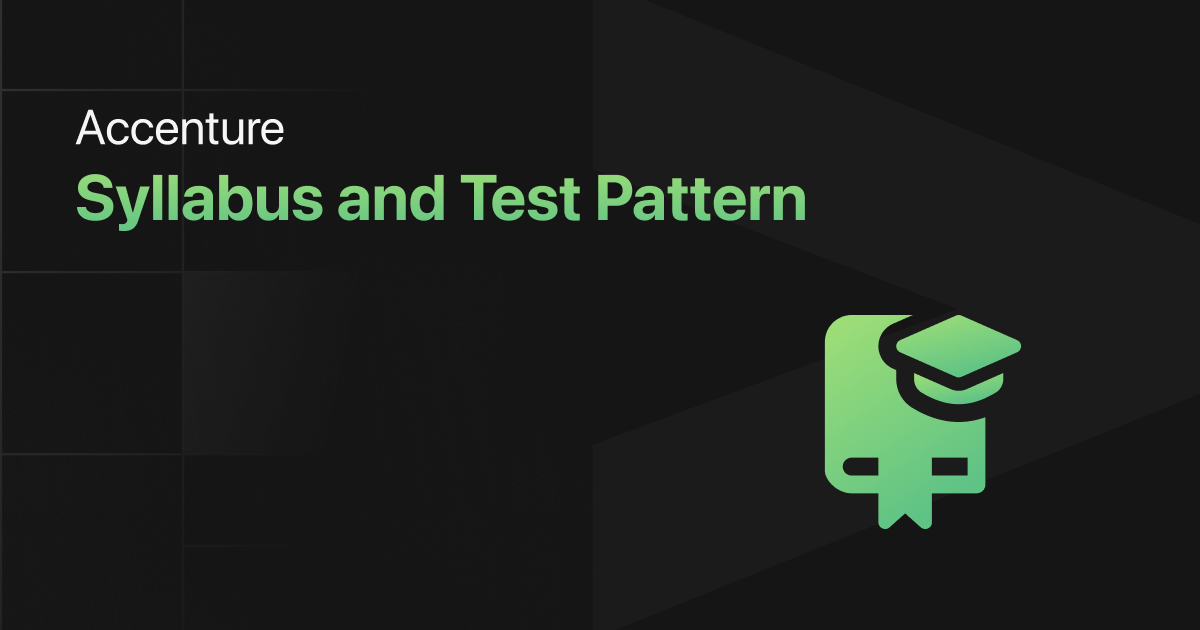Accenture Recruitment Process
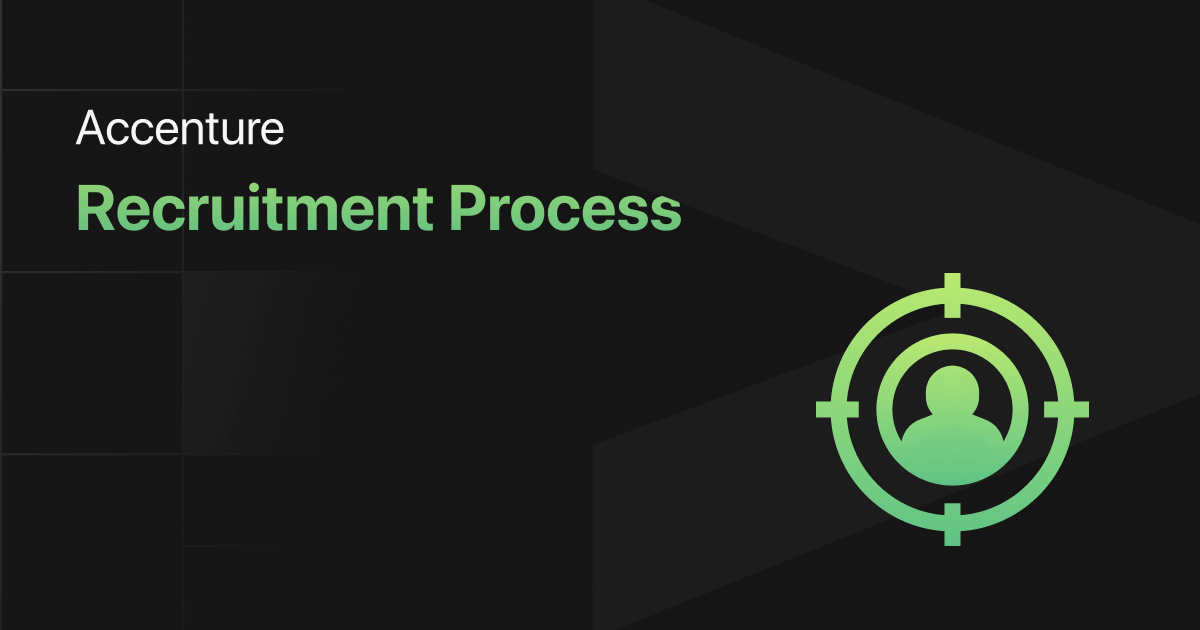
If you’re a fresher eyeing an exciting opportunity with one of the world’s leading consulting firms, Accenture’s Off Campus Drive can be the path for you.
This guide will walk you through the essentials of the accenture recruitment process, from eligibility to interview stages. Let’s dive in!
Accenture Recruitment Eligibility Criteria
Before you register for the Accenture Off Campus Drive, ensure that you meet the specific eligibility criteria:
| Criteria Factor/Parameter | Information |
|---|---|
| Educational Qualifications | Bachelor's degree in a relevant field. Higher qualifications or specialized certifications may be required. |
| Experience Level | Opportunities available for fresh graduates and experienced professionals. Specific requirements vary by role. |
| Academic Score | Minimum aggregate score of 60% or equivalent CGPA in graduation. No active backlogs at the time of application. |
| Citizenship Status | Must be an Indian citizen or carry a PIO or OCI card if holding a passport from another nation. |
| Application Gap | At least a 6-month gap between a candidate’s previous and current application. |
| Other Requirements | Candidates must not have any remaining college attendance requirements. |
Accenture Job Roles
Accenture has introduced two new and exciting roles for the recruitment year of 2024, namely Advanced Associate Software Engineer (AASE) and Associate Software Engineer (ASE).
Here’s a detailed breakdown of the eligibility criteria for both positions:
| Job Role | Eligible Batch | Eligible Stream | Backlog | Percentage Criteria |
|---|---|---|---|---|
| Advanced Associate Software Engineer (AASE) | 2023 & 2024 | BE/B.Tech, MCA, M.Sc. (CSE, IT only) | No active Backlog | 65% or 6.5 CGPA in graduation |
| Associate Software Engineer (ASE) | 2023 & 2024 | BE/B.Tech, MCA, M.Sc. (CSE, IT only) | No active Backlog | 65% or 6.5 CGPA in graduation |
Accenture Recruitment Process for Freshers 2024
Accenture’s recruitment process aims to identify the best candidates through a comprehensive evaluation. Here’s how it unfolds:
1. First Round – Cognitive and Technical Assessment
In this initial round, candidates are assessed on cognitive abilities and technical knowledge. The round consists of two main sections:
| Section | Subsection | Details | Questions | Time Allotted |
|---|---|---|---|---|
| Cognitive Assessment | 50 | 50 Minutes | ||
| English Ability | Reading Comprehension, Grammar, Vocabulary, Error Spotting | 17 | ||
| Analytical Reasoning | Logical Patterns, Flowcharts, Decoding Encryption | 18 | ||
| Numerical Reasoning | Basic Mathematics, Averaging, Statistics | 15 | ||
| Technical Assessment | 40 | 40 Minutes | ||
| Common Applications & MS Office | Excel Formulas, MS Word, Presentations | 12 | ||
| Pseudo Code | C, C++, Java, OOPS Concepts | 18 | ||
| Networking, Security, and Cloud | Basic Knowledge of Networking, Security, Cloud Frameworks | 10 |
1. Cognitive Assessment:
English Ability: This section evaluates grammar, vocabulary, reading comprehension, and error spotting. It assesses the candidates’ understanding of English language constructs and ability to interpret written information.
Analytical Reasoning: Focuses on deductive logical thinking, pattern recognition, and the ability to decode encrypted information. It aims to test the candidates’ critical thinking skills.
Numerical Ability: Tests basic mathematics such as percentage calculation, distance-velocity calculations, and algebra. It assesses the candidates’ quantitative skills.
2. Technical Assessment:
Common Applications & MS Office: Evaluates practical knowledge of computer applications like Excel, MS Word, and PowerPoint. It ensures that candidates are proficient in basic computer operations.
Pseudo Code: Focuses on understanding programming logic and languages like C, C++, and Java. It assesses candidates’ familiarity with Object-Oriented Programming (OOPS) and data structures.
Networking, Security, and Cloud: Tests knowledge of fundamental networking, security, and cloud terminologies. It ensures that candidates have a basic understanding of these critical areas in today’s tech landscape.
This round serves as an elimination stage, and candidates must clear cut-off marks in each section and subsection. There is no negative marking, but time management is crucial, with a time limit of 1 minute per question.
2. Second Round – Coding Ability
The coding ability round challenges candidates’ problem-solving and coding skills. The complexity and number of problems vary:
| Coding Language Options | Complexity | Number of Problems | Duration |
|---|---|---|---|
| C, C++, Java, Python | Varied | 2-3 | 45 minutes |
Object-Oriented Languages (OOL): Candidates are provided with two coding questions that they are free to solve using any Object-Oriented Programming languages like C, C++, Java, Dot Net, or Python.
Unlike previous years, the coding round now serves as an elimination round. Failing to clear this round means the candidate won’t progress to the subsequent stages.
3. Third Round – Communication Assessment
Effective communication is a vital skill at Accenture. This round focuses on evaluating candidates communication skills:
| Skill | Description |
|---|---|
| Sentence Mastery | Proper use of tenses, voices, and prepositions; crisp sentence framing |
| Vocabulary | Effective use of words in sentences |
| Fluency | Comfort in speaking English; smooth bridging of sentences; use of fillers |
| Pronunciation | Proper pronunciation of English words, minimizing regional accent effects |
Sentence Mastery: This evaluates the candidate’s ability to use sentences accurately, including proper use of tenses, voices, and prepositions. The ability to frame concise and clear sentences is assessed here.
Vocabulary: This section checks the candidate’s effective use of words and how they fit into a sentence, reflecting the richness and appropriateness of their vocabulary.
Fluency: Assessing the candidate’s comfort level while speaking English, this section also notes the use of fillers and how smoothly the candidate bridges sentences together.
Pronunciation: Proper pronunciation of English words is key, and this part of the assessment looks for any strong regional accent that might affect pronunciation. Candidates are encouraged to work on minimizing such effects.
4. Interview Technical/HR
The final stage includes two interviews that gauge technical expertise and alignment with Accenture’s culture:
| Interview Type | Focus Area | Duration |
|---|---|---|
| Technical Interview | Technical Skills, Academic Projects, Role-specific Concepts | 45 minutes |
| HR Interview | Personality, Career Goals, Cultural Fit | 30 minutes |
Technical Interview: Focuses on the candidate’s knowledge in their field of study, understanding of their academic projects, and technical skills that are essential for the job role.
HR Interview: Examines candidates’ alignment with the company’s values, career goals, personality traits, and suitability for the organizational culture.
FAQs
1. How many rounds are there in the Accenture recruitment process?
There are 4 (four) main rounds in the Accenture recruitment process for freshers: Cognitive and Technical Assessment, Coding Ability, Communication Assessment, and Technical/HR Interview.
2. What are the rounds in the Accenture interview process?
The rounds in the Accenture recruitment process include:
- First Round: Cognitive and Technical Assessment
- Second Round: Coding Ability
- Third Round: Communication Assessment
- Fourth Round: Technical/HR Interview
3. Which rounds are elimination rounds in the Accenture recruitment process?
The first Round (Cognitive and Technical Assessment) and second round (Coding Ability) are mentioned as elimination rounds in the Accenture recruitment process.
Explore More Accenture Resources
Related Posts
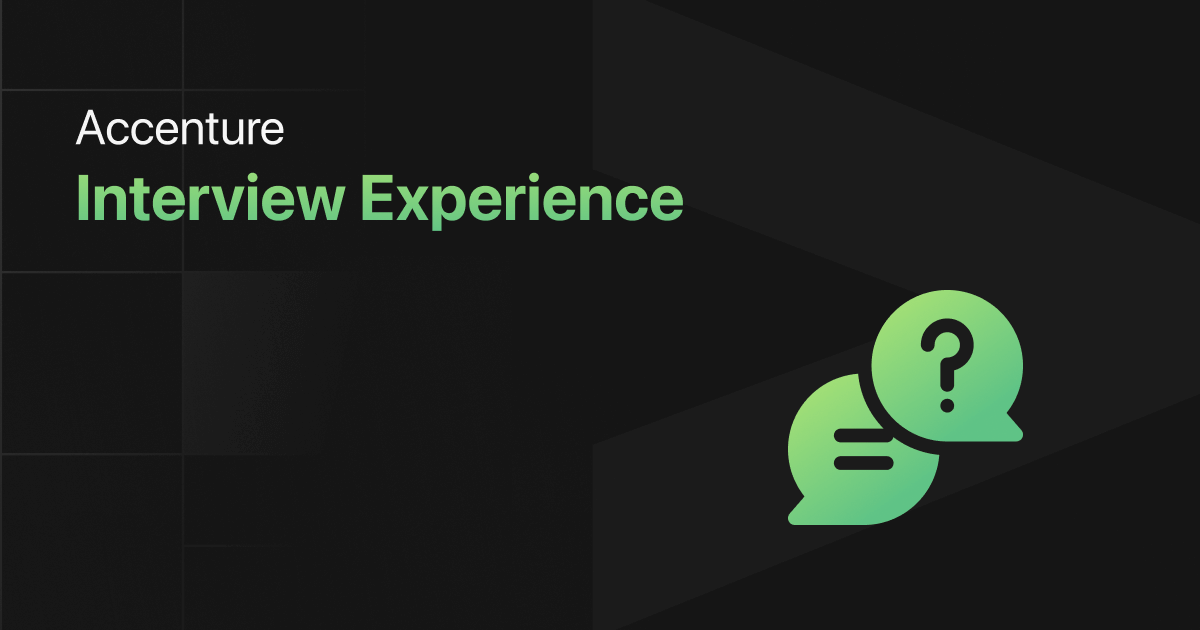

Accenture Interview Experience
Here are two real-life examples of Accenture fresher interview experiences to provide you with a detailed understanding of what the …
Warning: Undefined variable $post_id in /var/www/wordpress/wp-content/themes/placementpreparation/template-parts/popup-zenlite.php on line 1050


